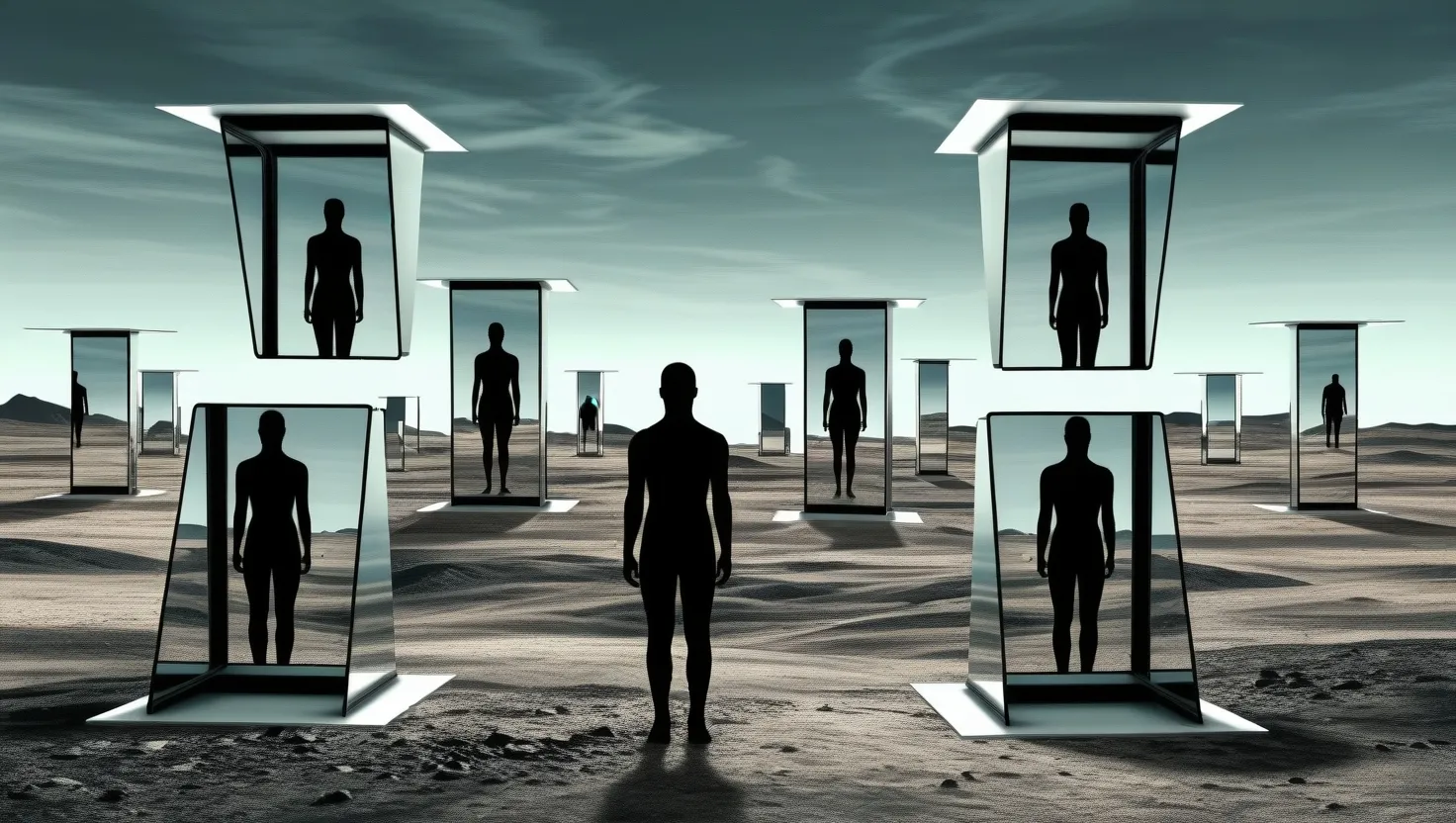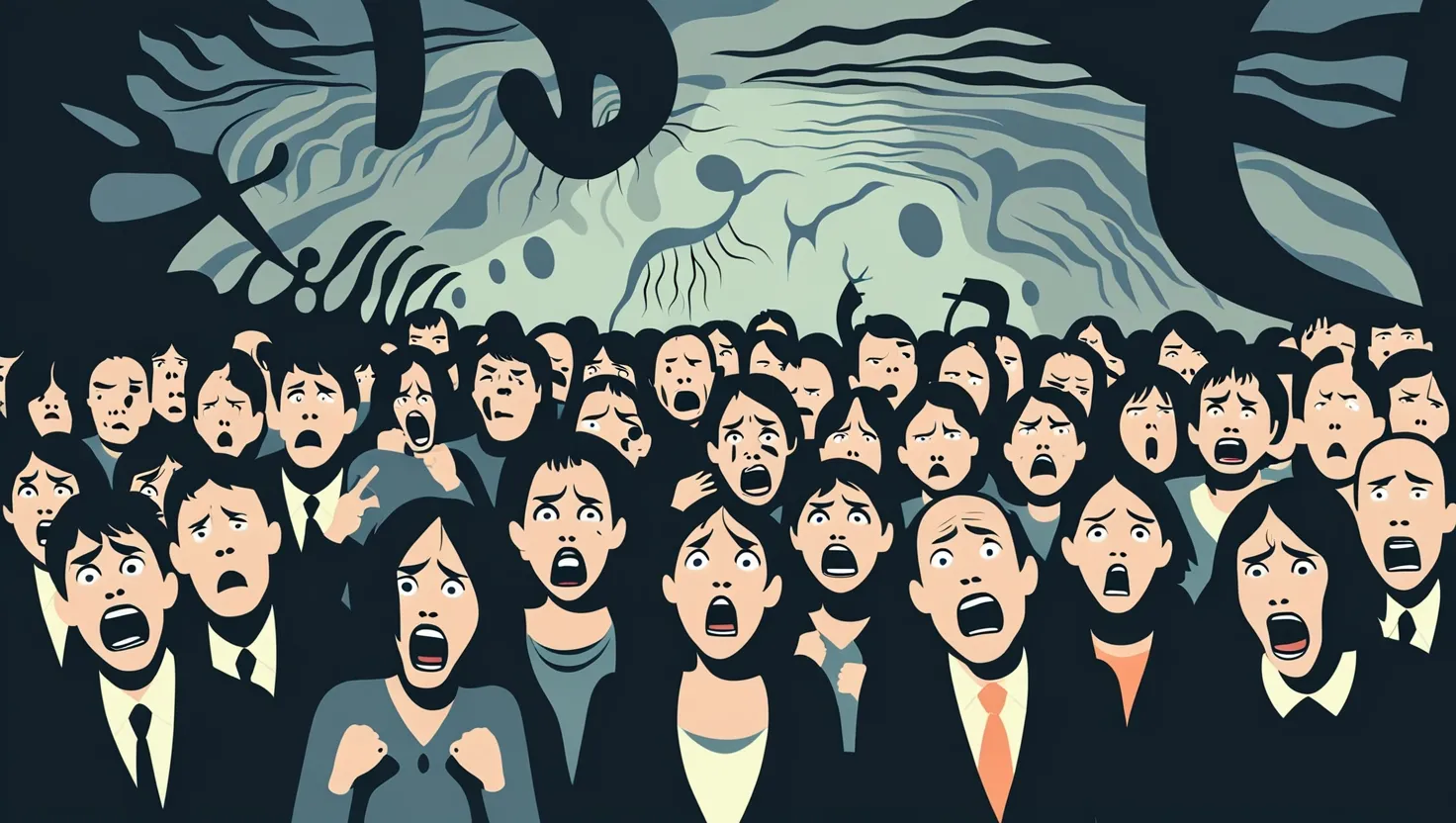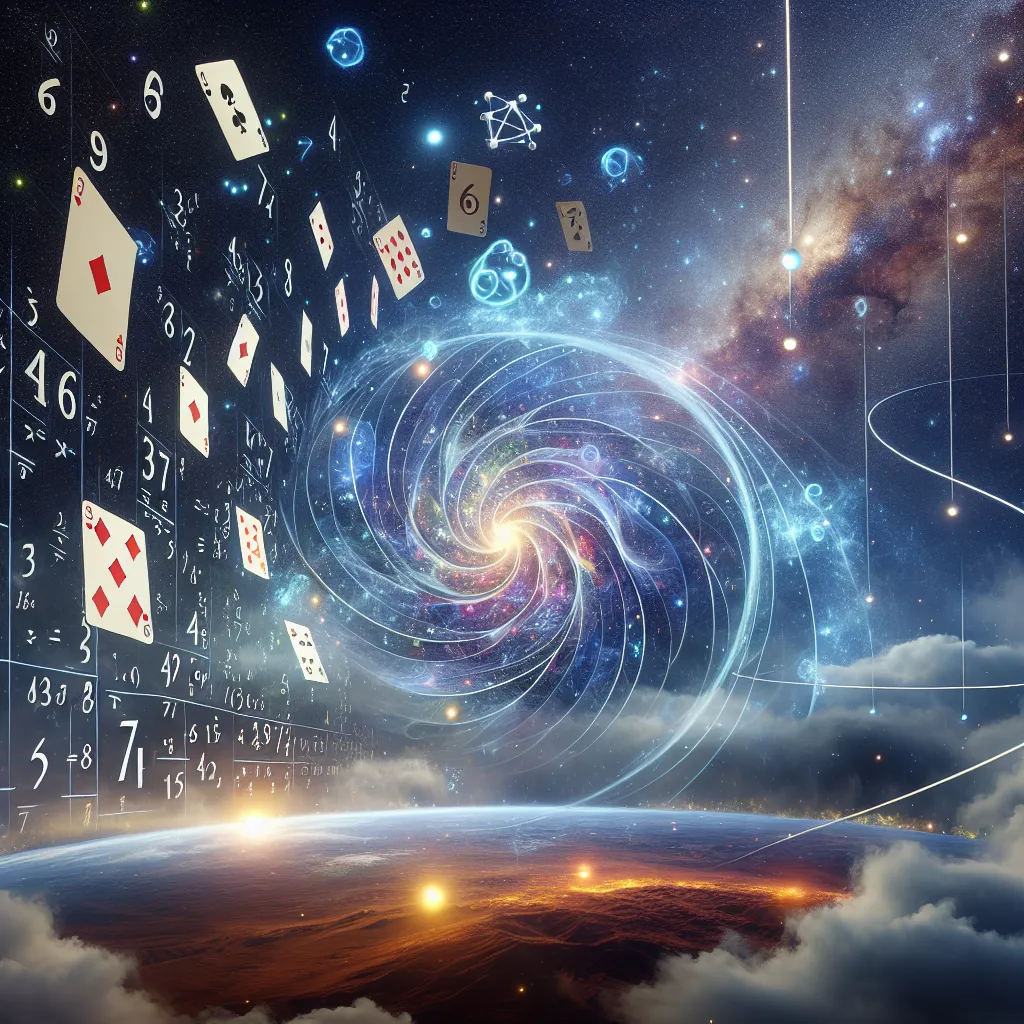Imagine a world where every decision you make, every action you take, and every thought you think creates a new reality, a new you, in a parallel universe. This concept, rooted in the Many-Worlds Interpretation (MWI) of quantum mechanics, suggests that our universe is just one of many, each with its own version of us. But what if these parallel selves are not just distant echoes of our existence? What if they are influencing our lives in ways we can’t even begin to understand?
The Quantum Shadow Self
The idea of a “quantum shadow self” proposes that our subconscious mind can tap into the experiences, emotions, and even the skills of our alternate selves from parallel universes. This theory is both fascinating and unsettling, as it implies that our deepest fears, desires, and hidden traits might be shaped by interactions with versions of ourselves that we are not consciously aware of.
To grasp this concept, let’s delve into the MWI. According to this theory, every time a quantum event occurs, the universe splits into multiple branches, each corresponding to a different outcome. This means that for every decision you make, there is a universe where you chose differently. If you think about the sheer number of decisions you make daily, the number of parallel universes and versions of you becomes staggering.
Psychological Implications
This idea raises intriguing questions about psychology and personal growth. What if sudden changes in personality or unexpected skills are not just internal developments but influences from our parallel selves? Imagine discovering a talent you never knew you had, only to realize that in another universe, you’ve been honing that skill for years.
Mental health issues could also be seen in a new light. Are some of our anxieties, fears, or depressions not just our own but also reflections of struggles our parallel selves are facing? This perspective could revolutionize how we approach mental health, suggesting that therapy might need to consider not just our conscious experiences but also the potential influences from our quantum shadow selves.
The Shadow Self in Psychology
The concept of a shadow self is not new to psychology. Carl Jung introduced the idea of the “shadow self” as the hidden aspects of our personality that we suppress, ignore, or reject. These parts of us are formed through early childhood experiences and interactions with our caregivers. However, when we consider the quantum shadow self, we add a new layer of complexity. Are these suppressed parts of us also influenced by our parallel selves?
For instance, if you have a fear of public speaking, it might not just be a result of past experiences in this universe but also a reflection of a parallel self who has had traumatic experiences related to public speaking. This could explain why some fears or phobias seem so deeply ingrained and difficult to overcome.
Quantum Interactions and Consciousness
The theory that our subconscious can interact with our parallel selves is supported by some interpretations of quantum mechanics. The idea that consciousness plays a significant role in shaping our reality is a theme that runs through various quantum theories. By changing our mindset and focus, we might be able to tap into these parallel realities and bring about changes in our lives.
This is where the concept of “quantum jumping manifestation” comes into play. It suggests that by shifting our mindset and using visualization techniques, we can transition into a new reality, one that aligns more closely with our desires. While this sounds like science fiction, it is grounded in the idea that our consciousness is not limited to this single reality but can interact with the multiverse.
Personal Experiences and Anecdotes
I recall a friend who, after a period of intense meditation and mindset work, suddenly found herself excelling in a field she had never been interested in before. She reported feeling an inexplicable sense of familiarity and confidence, as if she had been doing this work for years. Could this be an example of her tapping into the skills and experiences of a parallel self?
Another example is the phenomenon of “sudden genius,” where individuals discover talents or knowledge they never knew they possessed. This could be more than just a coincidence; it might be a manifestation of our quantum shadow selves influencing our conscious lives.
The Darker Side
While the idea of tapping into our parallel selves can be empowering, there is also a darker side to consider. What if negative influences from other realities are sabotaging our lives? Imagine if every bad decision or negative experience in another universe is somehow affecting your current reality.
This raises questions about free will and the nature of self. Are we truly in control of our lives, or are we being influenced by forces beyond our comprehension? The concept of the quantum shadow self suggests that we might be carrying the weight of infinite selves within us, each with their own experiences and emotions.
Conclusion
The idea that our deepest fears, desires, and hidden traits might be influenced by versions of ourselves from parallel universes is a mind-bending concept that challenges our understanding of self and reality. While it is still highly speculative, it opens up new avenues for understanding human psychology and personal growth.
As we continue to explore the mysteries of quantum mechanics and its implications on our lives, we may find that the line between science and science fiction is thinner than we thought. The quantum shadow self is a fascinating and complex idea that invites us to question everything we thought we knew about ourselves and the universe.
In the end, whether this theory is proven or remains a leap of scientific imagination, it serves as a reminder of the vast and unexplored nature of human consciousness and the multiverse. As we delve deeper into these mysteries, we may discover that the true power of our minds lies not just in what we can achieve in this reality but in the infinite possibilities that exist beyond.






